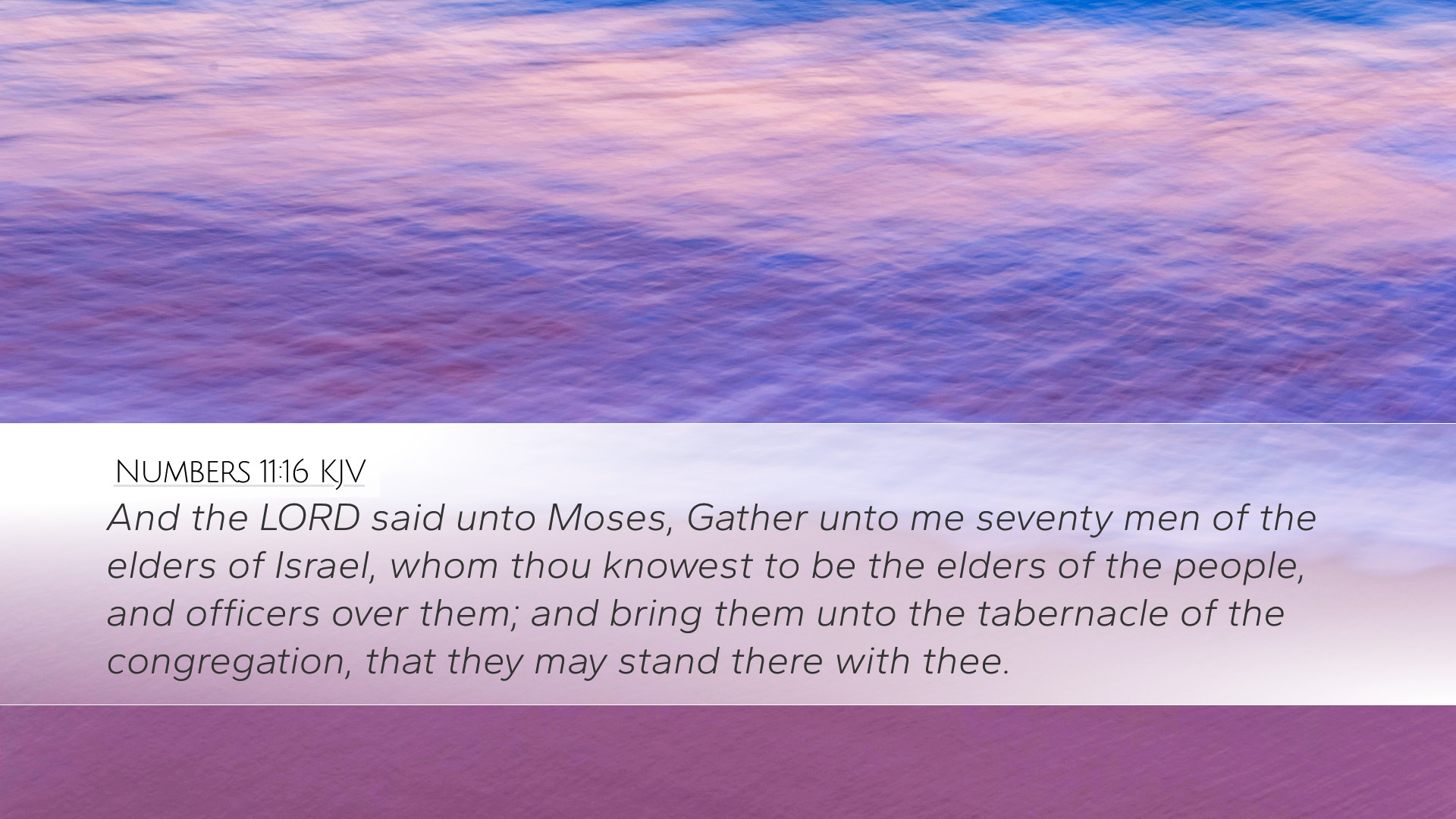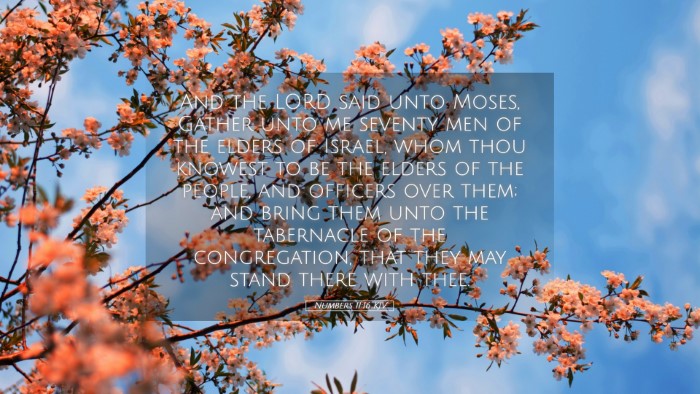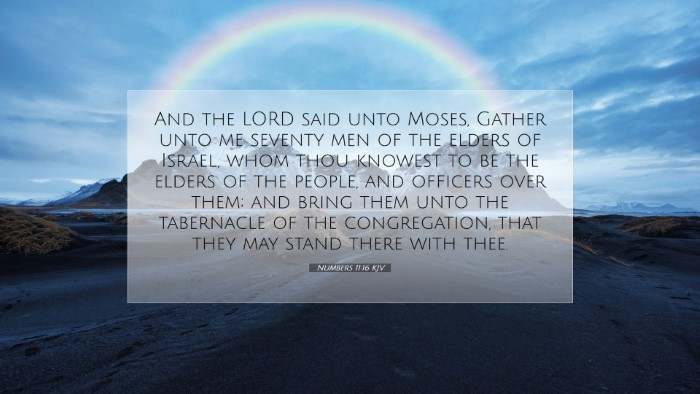Bible Commentary on Numbers 11:16
Verse Text: "The LORD said to Moses, 'Gather for me seventy men of the elders of Israel, whom you know to be the elders of the people and officers over them; and bring them to the tent of meeting, and let them take their stand there with you.'
Introduction
This verse marks a pivotal moment in the narrative of Numbers as God prepares Moses to share the burden of leadership among the people of Israel. By appointing seventy elders, God is addressing the challenge of leadership and providing a framework for shared responsibility. The insights drawn from public domain commentaries shed light on the implications of this divine directive.
Divine Appointment of Leadership
Matthew Henry observes: The need for additional leaders arises from the heavy burden Moses bears, which nearly overwhelms him. By choosing the elders, God demonstrates His understanding of human limitations and the necessity of shared leadership. This reflects the communal aspect of governance in the Israelite context, where leadership is not singular but distributed among many.
Albert Barnes adds: The elders were chosen based not only on their age but on their wisdom and reputation among the people. This suggests that spiritual and moral integrity is paramount in leadership selection, a principle that remains relevant in contemporary church governance.
Preparation for Ministry
Adam Clarke emphasizes: The specific request to gather the elders in the "tent of meeting" signifies the sacred nature of such an appointment. The Tent of Meeting represents the place of divine communication, and gathering there highlights the serious nature of their calling. This can be seen as a foreshadowing of the later New Testament principles of leadership and ordination.
- To be in the presence of God during their selection underscores that divine guidance is crucial for effective leadership.
- The location reinforces the spiritual accountability that accompanies leadership roles.
The Role and Responsibilities of the Elders
Henry notes: The elders were to assist Moses in bearing the burden of the people, which illustrates a key aspect of leadership: delegation. Moses’ example reflects the importance of not attempting to carry all responsibilities alone, a lesson vital for pastors and leaders today.
Barnes explains: The elders were to serve as mediators between Moses and the people, addressing communal grievances and ensuring the welfare of the people. This dual role of spiritual and administrative leadership is essential for maintaining order and unity within the community.
Implications for Contemporary Leadership
From this passage, several lessons can be drawn for modern pastors and church leaders.
- Shared Leadership: Just as Moses appointed elders to share his burden, contemporary leaders should seek to surround themselves with trustworthy individuals who can help manage various aspects of ministry.
- Recognition of Diverse Gifts: Each elder likely brought a unique gift or perspective. This diversity can enhance decision-making and problem-solving in church settings.
- Integrity in Leadership: The qualifications for the elders emphasize the need for leaders to possess strong moral and ethical standards, which is crucial for the church’s witness in the world.
Theological Reflections
The selection of elders not only illustrates God’s provision for His people but also serves as a precursor to the New Testament understanding of the church's governance. The collective leadership model seen here emphasizes community and collaboration.
Conclusion
Numbers 11:16 offers profound insights into the nature of leadership within the community of faith. By reflecting on this text through the lenses of the commentaries, we grasp the importance of shared leadership, the sacredness of ordination, and the necessity for integrity in spiritual leadership. Pastors, students, and scholars alike can glean from this ancient wisdom to navigate the challenges of contemporary ministry with both insight and grace.


